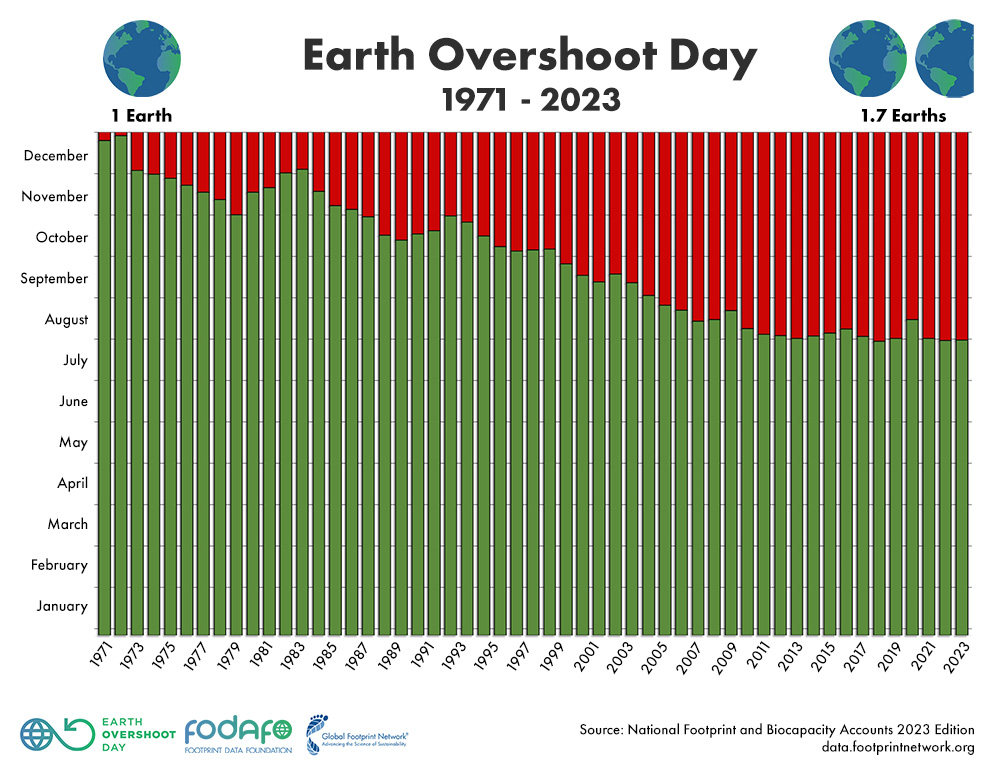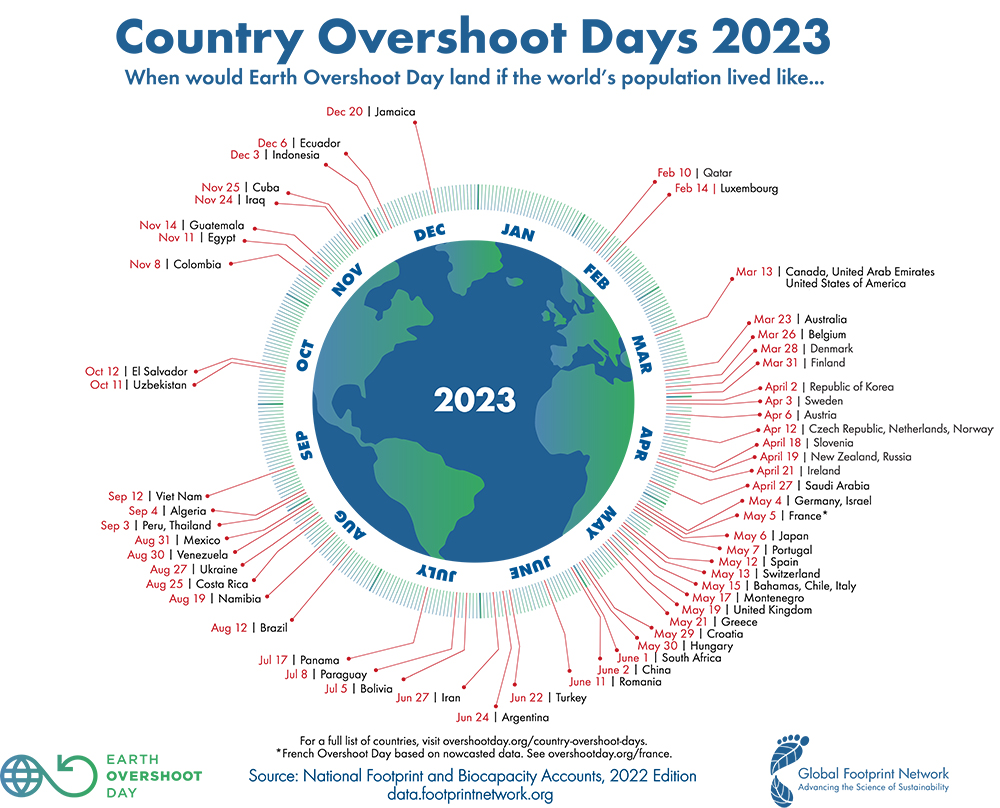Earth Overshoot Day: We've Already Exhausted Our Resources For 2023
Earth Overshoot Day: We've Already Exhausted Our Resources For 2023
Earth Overshoot Day started being estimated in 1970 to measure annually the limit date by which the planet can supply human demand for natural resources. By hitting and surpassing this limit, we go into an "overdraft" with Earth, using more resources than It can produce and regenerate.
 IMAGE COURTESY OF FOOTPRINT NETWORK
IMAGE COURTESY OF FOOTPRINT NETWORK
In 2023, Earth Overshoot Day took place earlier this month, on August 2nd. In other words, our current consumption pattern would require 1,7 planets Earth.
Even more alarming, Earth Overshoot Day would be on March 13th if the world had American consumer habits.
 IMAGE COURTESY OF FOOTPRINT NETWORK
IMAGE COURTESY OF FOOTPRINT NETWORK
The increased demand for natural resources over the decades is expected, be it because of population growth or countries' development. Nevertheless, we have increasingly more tools and technologies that prove how this development is occurring in an unsustainable fashion.
CHALLENGES OF CURRENT TIMES
Rampant consumption results in one of our generation's biggest problems: wastefulness. Nowadays, something considered interesting and trendy this week will have no value the next. This leads to a vicious cycle of disposing of materials.
If you take a moment to think about it, you will see that there is no throwing things away. At the end of the day, everything goes somewhere. And that's when circular economy comes in, a way to reuse or redesign materials and reduce unrestrained disposal.
HOW TO CONSUME IN A WAY THAT'S SUSTAINABLE FOR PLANET EARTH?
Transformation towards sustainability is crucial, from governments and big companies implementing changes to us and our daily habits.
Some much-needed efforts listed by WWF Brazil are:
- Fighting hunger and food insecurity;
- Adopting renewable energy sources;
- Implementing deforestation-free supply chains;
- Fomenting sociobioeconomy;
- Restoring native vegetation;
- Fulfilling net-zero targets;
- Fighting against the hunting of wild animals;
- Protecting Indigenous peoples.
INDIVIDUAL ACTIONS
Our habits also interfere with the environment. You can measure your impact on Earth by calculating your Carbon Footprint to find out how to reduce your own demand for natural resources.
Some adjustments can be easily accomplished, such as replacing cars for bicycles on short trips, reusing empty packaging instead of disposing of them, switching plastic bags and bottles for durable alternatives, buying from clean brands with labels that prove their sustainable supply chain, and so on.
HOW TO REDUCE THE EARTH OVERSHOOT DAY - CHECK THE DATA BY WWF BRAZIL:
- If we reduce car usage by 50% worldwide and take on more sustainable urban mobility like public transportation, bicycles, and walking, Earth Overshoot Day would recede by 13 days.
- If we reduce food waste by half worldwide, we would also postpone Overshoot Day by 13 days.
- Reforesting 350 million forest acres would postpone Overshoot Day by 8 days.
